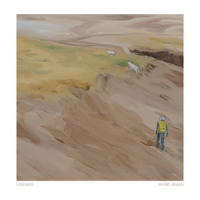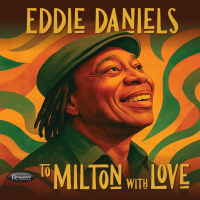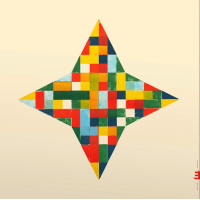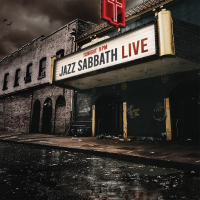Home » Jazz Articles » Multiple Reviews » Nubya Garcia & Shabaka Hutchings Meditate Together On Bitches Brew
Nubya Garcia & Shabaka Hutchings Meditate Together On Bitches Brew
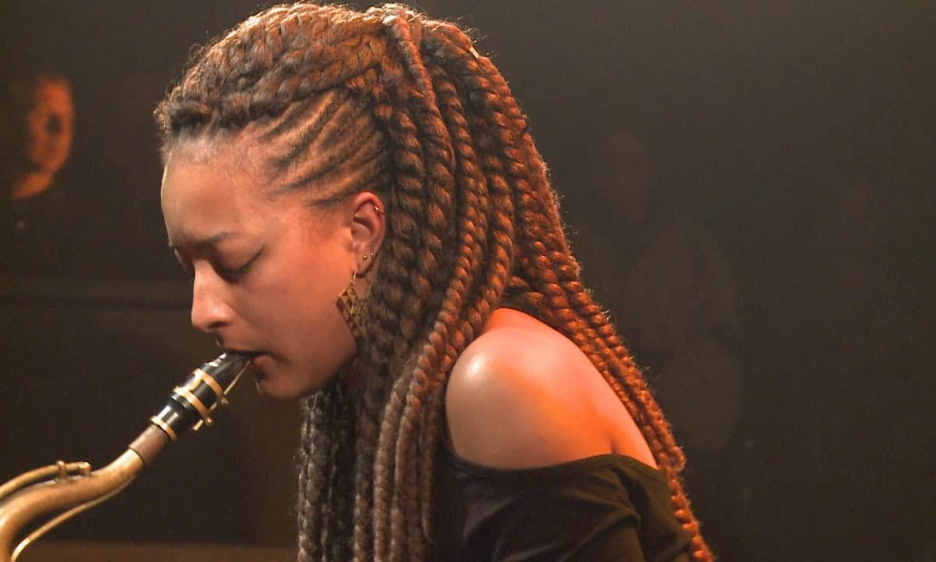
Even people who have reservations about Bitches Brew may find themselves inexorably drawn towards London Brew. The humanity of it, the feeling of musicians making music for the pure joy of making music, as a social force and a group activity, is irresistible.
The double album London Brew (Concord) is to be released on March 31, 2023. On it, Garcia and Hutchings front a twelve-piece lineup which explores Miles Davis' Bitches Brew (Columbia, 1970). Drummer and percussionist Tom Skinner's Voices Of Bishara (Brownswood/International Anthem/Nonesuch), released at the end of 2022, celebrates cellist Abdul Wadud's lesser known By Myself (Bisharra, 1978). The new albums, recorded before and during the pandemic, are the finest to be released out of London since lockdowns ended.
Below is a synopsis of the new albums' shared backstory, followed by a review of each.
The story begins in early 2018, when Tom Skinner, of the late lamented Sons of Kemet, fronted a Played Twice session at the Brilliant Corners bar in Hackney, East London. The format for Played Twice gigs was to play a classic album through the venue's audiophile sound-system and then, after a brief interval, have a group of musicians bounce off it live, avoiding any literalist replication. Skinner chose Tony Williams' Life Time (Blue Note, 1965), playing with Garcia, Hutchings, bassist Tom Herbert and cellist Kareem Dayes.
Towards the end of 2018, Skinner reassembled the same quintet to record Voices Of Bishara, his own-name debut. Other commitments (including he and his partner's first baby) led Skinner to put the project on hold during 2019 and 2020. But in 2021 he and Sons Of Kemet's sound engineer Dilip Harris extensively remixed, edited and generally cut-up and pasted the original recording, rather like Miles Davis and Teo Macero approached Bitches Brew and some of their other collaborations.
Between lockdowns in December 2020, the Voices Of Bishara quintet, without Kareem Dayes but with eight other musicians, recorded London Brew over three days in The Church studios in London (check the YouTube trailer below). The plan, pre-pandemic, had been to perform a concert in celebration of the 50th Anniversary of Bitches Brew, and the recording sessions came to be in its place.
 London Brew
London Brew London Brew
Concord
2023
Along with Skinner, Garcia, Hutchings and Herbert, the London Brew band comprises ex-Sons Of Kemet tubaist Theon Cross, guitarists Dave Okumu and Martin Terefe, pianist Nick Ramm, drummer and percussionist Dan See, violinist Raven Bush and electronicists Benji B and Nikolaj Torp Larsen.
Yes, there are no trumpets. The decision to exclude the instrument from the sessions was arrived at not for want of an electric-Davis-immersed trumpeter in London. Yazz Ahmed, for instance, could have riffed off Bitches Brew, and sometimes does just that during her concert performances, effects pedals, looping console and all. The frequently plugged-in Laura Jurd is equally well qualified. But the inclusion of a trumpeter, any trumpeter, could have resulted in a recording asking for literalist comparisons to or with Davis' disc (and it might also have been Mission Impossible for any player game enough to take the project on). London Brew was intended instead to be a free-flowing collective meditation on the 1970 album, unencumbered by the presence of such an obvious imprint of its historic catalyst.
The two albums do, however, have resemblances, fleeting rather than defining. Electronic effects run through both, although 21st century digital ones have little sonic similarity with 20th century analogue ones. Shabaka Hutchings' bass clarinet inevitably resonates with Bennie Maupin's, though the two musicians' styles are so different that there is little danger of mistaking one for the other. Nikolaj Torp Larsen and Nick Ramm's keyboards and synthesizers occasionally chime with Joe Zawinul and Chick Corea's textures. Ditto Dave Okumu and John McLaughlin's guitars. Nubya Garcia's uses of pedals on "Miles Chases New Voodoo In The Church" deliberately references Davis' trumpet on "Miles Runs The Voodoo Down."
London Brew also employs edits and post-production juxtapositions, signature characteristics of Teo Macero's assemblage of Bitches Brew. There are nineteen edits during the 20:05 running time of that album's opening track, "Pharoah's Dance," and perhaps eleven during London Brew's eponymous 23:34 opener. There may be more, there may be less, with 21st century studio tech it is hard to tell.
But the new album sounds like more of a linear narrative than does its predecessor, and the use of motifs, sounds and architectural constructs originating on Bitches Brew do not make London Brew a covers' album. It is what it set out to be: a thrilling, collectively improvised exploration and, ultimately, a brand new set of music.
Adding to the feeling of novelty are three players whose instruments have no literal connection to Bitches Brew: turntablist Benji B, tubaist Theon Cross and violinist Raven Bush. Cross' low-end growls are, as ever, deep-down dirty and exciting and work as a kind of basso profundo version of Davis' middle-register trumpet vocalisations. Bush's violin is alternatively atonal, referencing Davis' menacing chromaticism, and grittily lyrical. (It may not mean anything to American AAJers, but in 2019 Bush was commissioned by Britain's leading modern dance company, Rambert, to compose a soundtrack for a performance by the dancers in conjunction with the often violent, acclaimed BBC-TV period crime-series Peaky Blinders).
A fundamental reason for the success of London Brew is the circumstances surrounding its recording. For most of the players, making the album was their first time in a room recording with their friends in real time for the best part of a year, because of lockdown restrictions. Some of them have remarked that playing with this larger group of people at the end of an extended period of enforced isolation was a profoundly liberating experience. The pleasure they found in coming together again is palpable.
Bottom line: Even people who have reservations about Bitches Brew, and there are many of us, may find themselves inexorably drawn towards London Brew. The humanity of it, the feeling of musicians making music for the pure love of making music, as a social force and a communal activity, is irresistible. Album of the year? Could be.
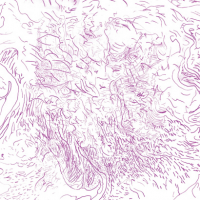 Tom Skinner
Tom Skinner Voices Of Bishara
Brownswood/International Anthem/Nonesuch
2022
[This review is an edited version of the one that ran on AAJ in November 2022]. If any one player kickstarted the process which led to London Brew it is Tom Skinner, with the aforementioned Played Twice session in 2018. Skinner has lit up avantist British jazz for around twenty years. Notable early sightings included his association with the London-based F-IRE musicians' collective and participation in the now Brooklyn-based saxophonist Ingrid Laubrock's calling card, Some Times (Candid, 2001), and her breakthrough album, Forensic (F-IRE, 2004).
The Voices Of Bishara band spans both the F-IRE era and London's post-2016 alternative jazz scene. Tom Herbert is Skinner's near contemporary and in the 2000s was a member of the influential Polar Bear and Acoustic Ladyland, both intricately intertwined with Laubrock's lineups and F-IRE generally. From the school of 2016 come Shabaka Hutchings, Nubya Garcia and Kareem Dayes.
Voices Of Bishara was recorded live in the studio and then Skinner got busy with the editing scissors. He applied them with gusto, rather in the manner of Teo Macero with Miles Davis, or disco auteurs such as Theo Parrish: Macero and Parrish both assembled tracks in a manner which was as radical as William Burroughs and Brion Gysin's literary cut-up technique, though without the element of random chance. "It was really empowering to fuck it up a bit," says Skinner. "To mess around with the music and see what happened." What happened is just over thirty minutes of exalted jazz. It is by turns tumultuous, when Hutchings and Garcia unleash their broken-note strewn tenors, and meditative, when Hutchings switches to bass clarinet, Garcia to flute, and Dayes' sonorous cello steps forward.
As mentioned at the start of this article, Voices Of Bishara's title was inspired by the American cellist Abdul Wadud's solo album By Myself, which he released on his own Bisharra label in 1978 and with which Skinner later became, as he puts it, "obsessed." Skinner's title uses the more conventional spelling of the Arabic word, but they both translate as "good news." Sadly, Wadud passed in 2022, before Voices Of Bishara was released. One hopes and guesses he would have enjoyed the salute, for the news on the album is as good as it gets.
Postscript: Voices Of Bishara was the first time that Shabaka Hutchings and Nubya Garcia had been heard playing together on record. London Brew is the second time.
Tracks and Personnel
London BrewTracks: London Brew; London Brew Pt. 2; Miles Chases New Voodoo In The Church; Nu Sha Ni Sha Nu Oss Ra; It's One Of These; Bassics; Mor Ning Prayers; Raven Flies Low.
Personnel: Benji B: decks, sonic re-cycling; Raven Bush: violin, electronics; Theon Cross: tuba; Nubya Garcia: tenor saxophone, flute; Tom Herbert: electric bass, double bass; Shabaka Hutchings: tenor saxophone, woodwinds; Nikolaj Torp Larsen: synthesizers, melodica; Dave Okumu: guitar; Nick Ramm: piano, synthesizers; Dan See: drums, percussion; Tom Skinner: drums, percussion; Martin Terefe: guitar, electronics.
Voices Of Bishara
Tracks: Bishara; Red 2; The Journey; The Day After Tomorrow; Voices (Of The Past); Quiet As It's Kept.
Personnel: Tom Skinner: drums; Kareem Dayes: cello; Nubya Garcia: tenor saxophone, flute; Tom Herbert: acoustic bass; Shabaka Hutchings: tenor saxophone, bass clarinet.
Tags
PREVIOUS / NEXT
Support All About Jazz
 All About Jazz has been a pillar of jazz since 1995, championing it as an art form and, more importantly, supporting the musicians who make it. Our enduring commitment has made "AAJ" one of the most culturally important websites of its kind, read by hundreds of thousands of fans, musicians and industry figures every month.
All About Jazz has been a pillar of jazz since 1995, championing it as an art form and, more importantly, supporting the musicians who make it. Our enduring commitment has made "AAJ" one of the most culturally important websites of its kind, read by hundreds of thousands of fans, musicians and industry figures every month.








